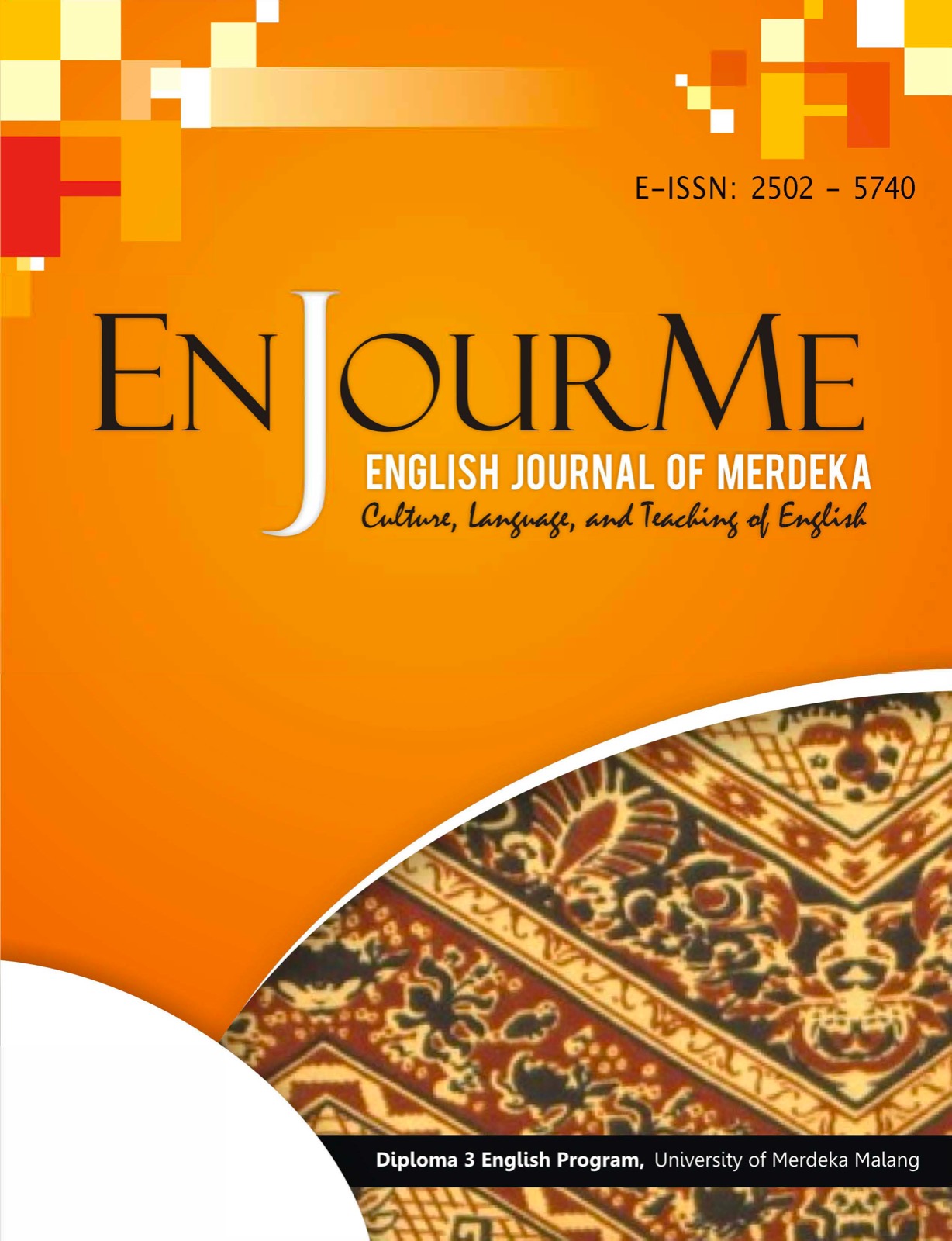Power and madness in Hamlet: A Foucauldian evaluation
DOI:
https://doi.org/10.26905/enjourme.v8i2.11569Keywords:
consciousness, Foucault, hegemony, madness, powerAbstract
For the Western consciousness, madness has always welled up simultaneously at multiple points, forming a constellation that slowly shifts from one form to another, its face perhaps
hiding an enigmatic truth. Meaning here is always fractured. William Shakespeare is renowned for his capacity to manufacture imagination and a great master of his use of psychological studies in the portrayals of insanity. In general, his artwork shows a keen knowledge of human nature. He has a thorough understanding of the human psyche, personality, and actions. Shakespeare's protagonist Hamlet assimilates madness in the most obstinate wisdom. This wisdom may be thin, but it reigns supreme. It presupposes and requires a perpetual doubling of the consciousness of madness, which disappears beneath the surface of madness, only to reappear again on the other side. The paper is an attempt to explore the mindscape of Prince Hamlet using the theoretical base of Michel Foucault's discourse on madness and the formation of power dichotomy. The paper also envisions a Lacanian regeneration of desire, sexuality, and narrative hegemony.
Downloads
References
Bradley, A. C. (2016). Shakespearean Tragedy: Lectures on Hamlet, Othello, King Lear, Macbeth. anboco.
Foucault, M. (1965). Madness and Civilization, trans. Richard Howard. New York, Pantheon.
Foucault, M. (1972). The archaeology of knowledge, trans. A. Sheridan. London: Tavistock.
Foucault, M. (1992). The use of pleasure: The history of sexuality: Volume 2. Penguin Books.
Foucault, M. (2001). A History of Insanity in the Age of Reason. Routledge.
Foucault, M. (2002). The birth of the clinic. Routledge.
Foucault, M. (2006). Method in Cultural theory and popular culture by John Storey.
Foucoult, M. (1975). Discipline and punish. A. Sheridan, Tr., Paris, FR, Gallimard.
Grigg, R. (2009). Lacan, language, and philosophy. State University of New York Press.
Hunt, M. W. (2007). Looking for hamlet. St. Martin's Press. Princeton University Press.
Knight, G. W. (2020). The wheel of fire. Routledge.
Levy, E. P. (2008). Hamlet and the Rethinking of Man. Associated University Presse.
McKnight, K. (2020). What Is’t Is't to be nothing but mad’mad': Documenting Madness through HAMLET (Doctoral dissertation).
Nee, S. (2005). The great chain of being. Nature, 435(7041), 429-429.
Patton, P. (2005). Foucault, critique and rights. Critical Horizons, 6(1), 267-287.
Putra, S. (2019). A study on moral values as reflected by two main characters in William Shakespeare’s Macbeth. EnJourMe (English Journal of Merdeka) : Culture, Language, and Teaching of English, 4(1), 37 - 42. doi:https://doi.org/10.26905/enjourme.v4i1.3613
Shakespeare, W. (2008). The Tragedy of Hamlet, ed. GR Hibbard.
Storey, J. (2021). Cultural theory and popular culture: An introduction. Routledge.
Totaro, R. (2010). Securing Sleep in Hamlet. SEL Studies in English Literature 1500- 1900, 50(2), 407-426.
Willcocks, L. (2004). Foucault, power/knowledge and information systems: Reconstructing the present. Social theory and philosophy for information systems, 238-296.
Woermann, M. (2012). Interpreting Foucault: an evaluation of a Foucauldian critique of education. South African Journal of Education, 32(1), 111-120.
Additional Files
Published
How to Cite
Issue
Section
License
Authors who publish with this journal agree to the following terms:
(1) Copyright of the published articles will be transferred to the journal as the publisher of the manuscripts. Therefore, the author confirms that the copyright has been managed by the journal.
(2) Publisher of EnJourMe (English Journal of Merdeka) : Culture, Language, and Teaching of English is University of Merdeka Malang.
(3) The copyright follows Creative Commons Attribution–ShareAlike License (CC BY SA): This license allows to Share — copy and redistribute the material in any medium or format, Adapt — remix, transform, and build upon the material, for any purpose, even commercially.




